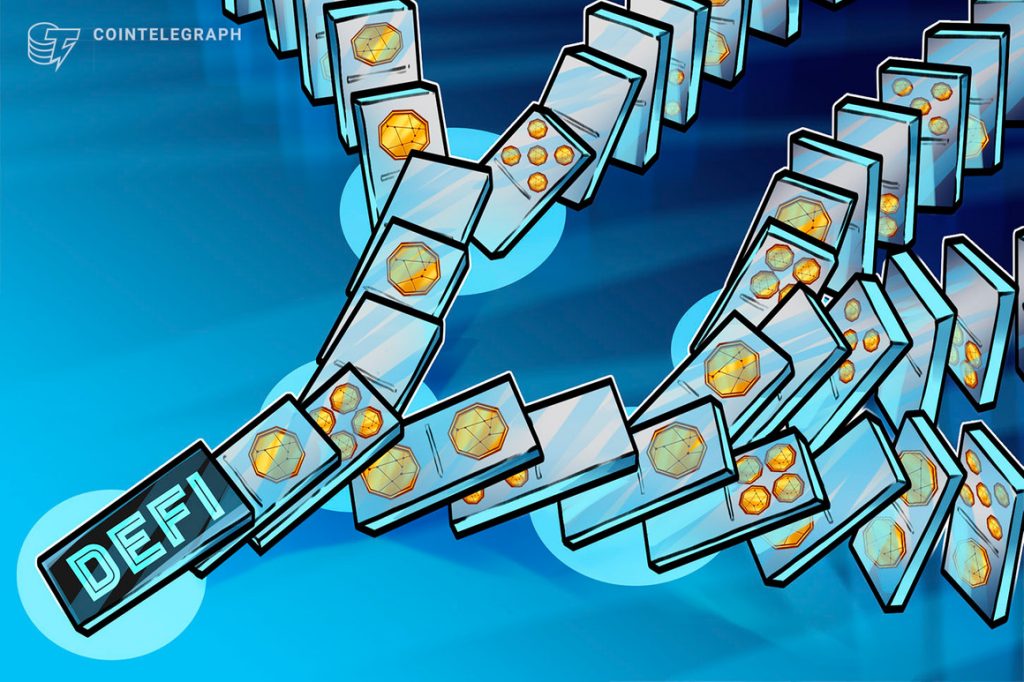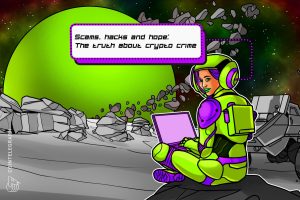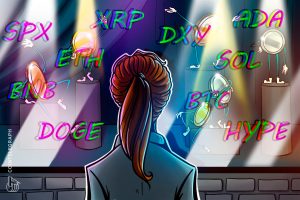DeFi’s domino effect on NFTs and Web 3.0 adoption

Decentralized finance (DeFi) has shined a spotlight on a fairer internet since early 2020, and we’re on the brink of something world-changing. DeFi technology would not be possible without the web infrastructure that is widely used today, demonstrating the tremendous strides we have made with next-level innovation. The third era of the internet has already dawned, with a new economy, new careers and new enterprise opportunities.
Many experts believe DeFi’s rise has helped nonfungible tokens (NFTs) become more liquid, allowing users to view them as a more realistic investment opportunity. The rise of NFTs is further proof as to how this area of finance leads to a more promising and fulfilling development to total Web 3.0 adoption. NFTs are empowering the democratization of the new web — one of many benefits of blockchain technology — while DeFi aims to deliver the promise of financial democratization.
Related: How NFTs, DeFi and Web 3.0 are intertwined
DeFi has been the catalyst behind the NFT avalanche we have seen in recent months, supported by the ideas and infrastructure represented by Web 3.0. Billionaire investor Mark Cuban is just one of the many believers in DeFi’s power and potential, comparing its growth to the beginning of the internet and relishing in all of its untapped potential.
While DeFi has undeniably helped the recent boom of NFTs, the relationship between the two is certainly symbiotic. NFTs help to bring new collateral options in DeFi lending and can even represent more complex financial products. Additionally, projects like Centrifuge, a protocol for decentralized asset finance, or Aavegotchi, a DeFi-enabled crypto-collectibles game that allows players to stake NFT avatars with interest-generating aTokens and interact with other users, are already working at the intersection of DeFi and NFTs.
Related: NFTs make it possible for gamers to have digital property rights
Users looking for increased transparency, fairness and open-source solutions could slowly but surely create a domino effect that will result in total Web 3.0 adoption. While the next era of the internet is still undefined, NFTs, tokenization and other next-level developments, paired with a growing need for more decentralized solutions, have opened the door for a better and stronger web ecosystem that can evolve alongside the industry.
Related: DeFi snowball will turn into a Web 3.0 avalanche
A solution-oriented web
While DeFi adoption continues its rollout on a global scale and is slated to challenge traditional finance, mainstream use cases are essential for this new era of the web to flourish. The next generation of the web is more focused on everyday usage and less on the technical infrastructure, creating an atmosphere that both challenges and changes human interaction as we know it.
The decentralized web will build a global wealth of applications and provide value to every individual, from teachers to doctors to fashion entrepreneurs and more. Major corporations including Microsoft, Sony and Samsung are already embracing blockchain, machine learning and other Web 3.0 technologies, recognizing their value for building a more scalable, real-time solution.
Related: Is a new decentralized internet, or Web 3.0, possible?
But how do we get there?
There is already a demand to bridge the gap between Web 2.0 and Web 3.0 to create a more censorship-resistant, flexible and open-source internet. DeFi continues to show its resilience in financial markets as the total value locked (TVL) in smart contracts remains above $111 billion, demonstrating the broader market trust in decentralized financial solutions despite some bearish trends elsewhere.
Related: DeFi proved resilient during the March 2020 and May 2021 market crises
Web 3.0 is a global movement, as evidenced by the heightened momentum surrounding DeFi digital assets. The price of Ether (ETH) is currently up over 1,000% compared with where it was one year ago, proving that products of the Web 3.0 era have the potential to recreate traditional financial products and achieve the same success, but in decentralized ways. It’s a safe bet that someday, these applications will bypass banks, Wall Street trading firms and brokerages entirely.
While DeFi pushes Web 3.0 full steam ahead, a seamless and efficient onboarding process is necessary. Making the leap from one version of the web to the next will require broader adoption of DeFi in everyday enterprises to truly bolster the learning curve that comes with Web 3.0’s new and improved properties. It will be essential that companies provide the financial support and technical expertise to make our new internet brilliant and usable for all.
Domino effect
The wait is over: Web 3.0 is no longer just a futuristic idea, but fast-approaching, too. Though there’s still work to be done before these new technologies are a part of everyday life, decentralized finance has paved a clear path for a new generation of bigger, smarter and better ways of thinking, testing the limits of mainstream adoption. NFTs are the most prominent of the use cases at the moment, and the DeFi movement can create tools that remove the need for intermediaries in any field, laying the groundwork for endless possibilities in DeFi and beyond.
As more centralized applications, institutions and traditional financial markets embrace blockchain technology and other cutting-edge applications, industry juggernauts will all follow suit. The web as we know it is dying, and this is not a bad thing. The DeFi domino effect will roll on throughout 2021 and result in widespread adoption of Web 3.0 — and crypto will lead the way.
This article does not contain investment advice or recommendations. Every investment and trading move involves risk, and readers should conduct their own research when making a decision.
The views, thoughts and opinions expressed here are the author’s alone and do not necessarily reflect or represent the views and opinions of Cointelegraph.
Maria Paula Fernandez is an adviser to the board of directors at Golem Network and serves as the founder and managing director of the Department of Decentralization (ETHBerlin). Maria Paula has been a part of the crypto community since early 2017, joining the Web3 Foundation and Polkadot in their very early days. In her spare time, Maria Paula leverages the Department of Decentralization (ETHBerlin) collective to explore different verticals of the community, from social experiments such as the Berlin culture and hacking festivals, to project managing the Ethereum Görli Testnet. One of her favorite topics to cover is the intersection of technology and art.












